Published Jan 27, 2021
How One Trek Fan's World Blends the Universes of Star Trek and International Affairs
An interview with fan Matthew Wallin
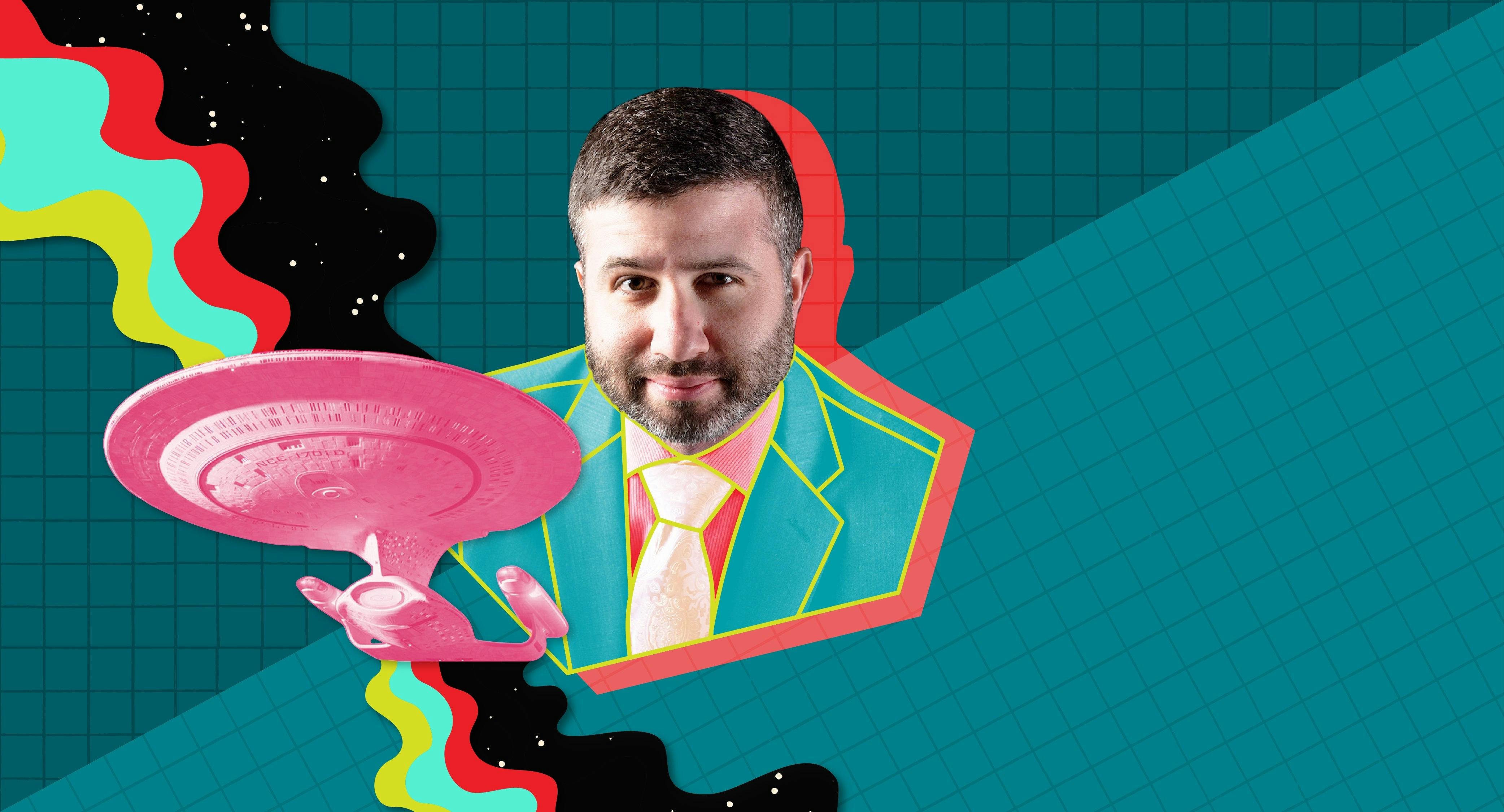
StarTrek.com
Matthew Wallin has been a passionate Star Trek fan since childhood — but he’s also a national security professional with expertise in public diplomacy, science diplomacy, military history, and international conflict. Wallin received his Masters of Public Diplomacy from the University of Southern California, studying the role of public diplomacy in military conflict and international conflict management. As a self-proclaimed “living historian,” Wallin also participates in World War II reenactments, not unlike the community-building and excitement of Star Trek nerd culture.
StarTrek.com spoke with Matthew Wallin about the ways in which Star Trek illustrates complex geopolitical relations, how Discovery advances our understanding of equality and provides a critique of international expansionism, and the eternal appeal of the franchise, where there’s genuinely something for everyone.
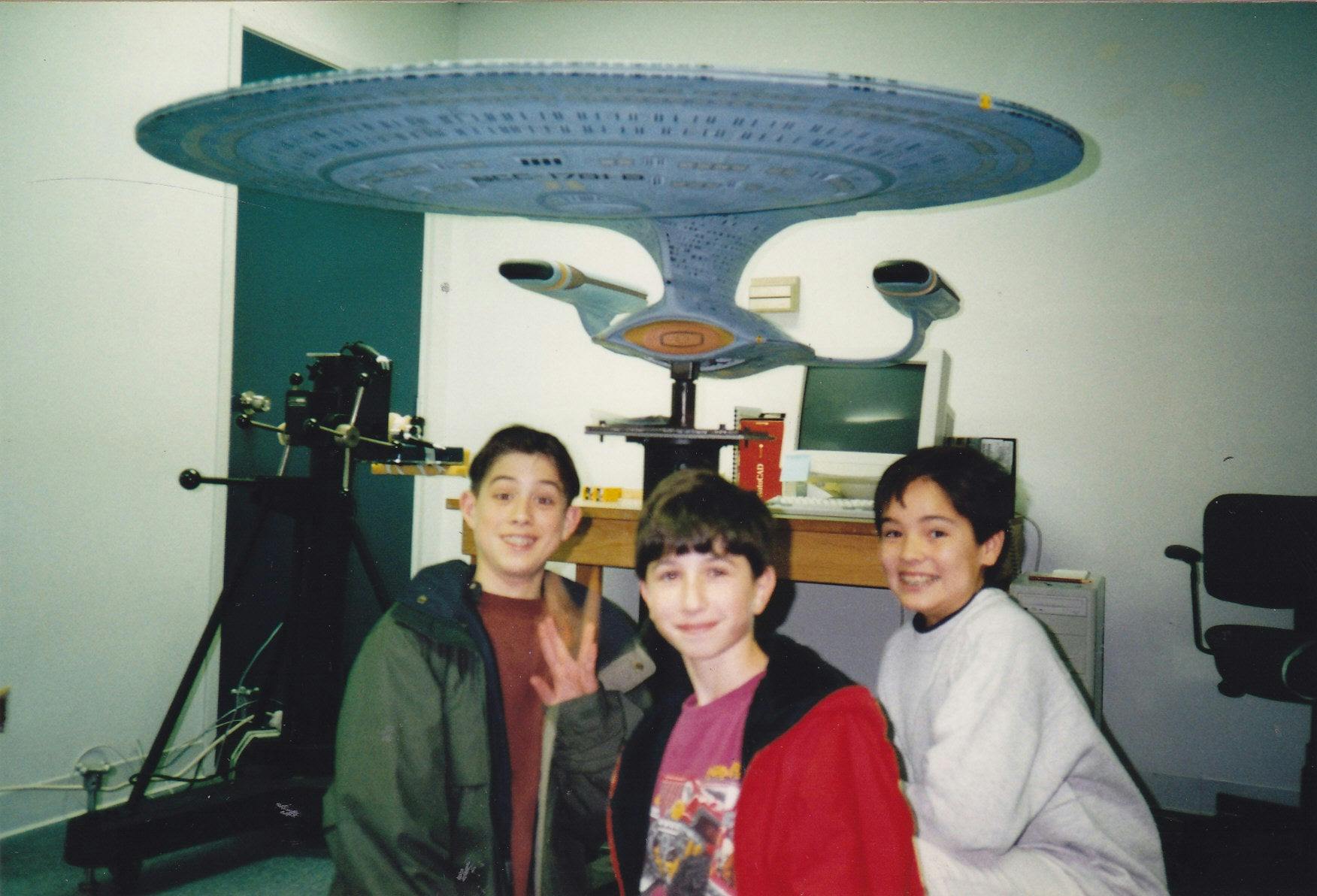
Matthew Wallin
StarTrek.com: Let’s start with the basics. How did you get into Star Trek?
Matthew Wallin: It was catching reruns on Channel 13 when I was growing up. I was definitely a kid — I want to say like age seven or eight. It was kind of in that 7 pm time frame where you've eaten dinner already and then you're just channel surfing, and usually the choices were Wheel of Fortune and Jeopardy! — or Star Trek: The Next Generation. I didn't quite ever really know what Star Trek was, but I kept seeing this really cool-looking ship on television. Eventually, I decided to just start watching it. That's where it started — just picking up reruns on television. I love The Next Generation because I grew up with it. In some sense, it's like the family that I grew up with. Those characters are near and dear to my heart. I also really enjoyed The Original Series movies, Star Trek I through VI. They’re the movies I grew up with. Those movies got me interested in The Original Series, getting the backstory and all that sort of stuff.
It’s interesting that the U.S.S Enterprise itself was your entry point to the franchise.
MW: As a kid, the hook was the visual effects. I had a friend’s whose dad worked for Rhythm & Hues, the animation company that created the visual effects for the Bajoran wormhole and the footage for the Star Trek ride [Klingon Encounter from Star Trek: The Experience] in Las Vegas when that was a thing.
This was in the time where you didn’t have 3D scanners. You would literally take an object, and you would put dots on it with a pen. The movement of that pen touching the different surfaces of the object would actually help trace it into a three-dimensional computer model. They had the [six-foot model of the] Enterprise-D at their animation studio, and I got to go see it in person. This is me being really nerdy — there are differences between the four-foot and the six-foot model. There’s a picture of me with that.
For a kid who fell in love with the ship, seeing it in person? I don’t know what else you could give a nerd child. I still have a bunch of those toys made by Playmates at the time in the 90s. I’ve got a whole bunch of those Playmates ships. I’ve got an Enterprise. I’ve got a Vor’cha-class Klingon battle cruiser, a Romulan War Bird, a few Micro Machines. I think they still make them now, Star Trek Micro Machines — those little tiny things. I had a Borg ship, which was super cool. I had action figures that I played the crap out of. I even had a transporter set. It worked on light and mirrors, and it was cool because you could make your action figure disappear and then reappear. It was awesome.
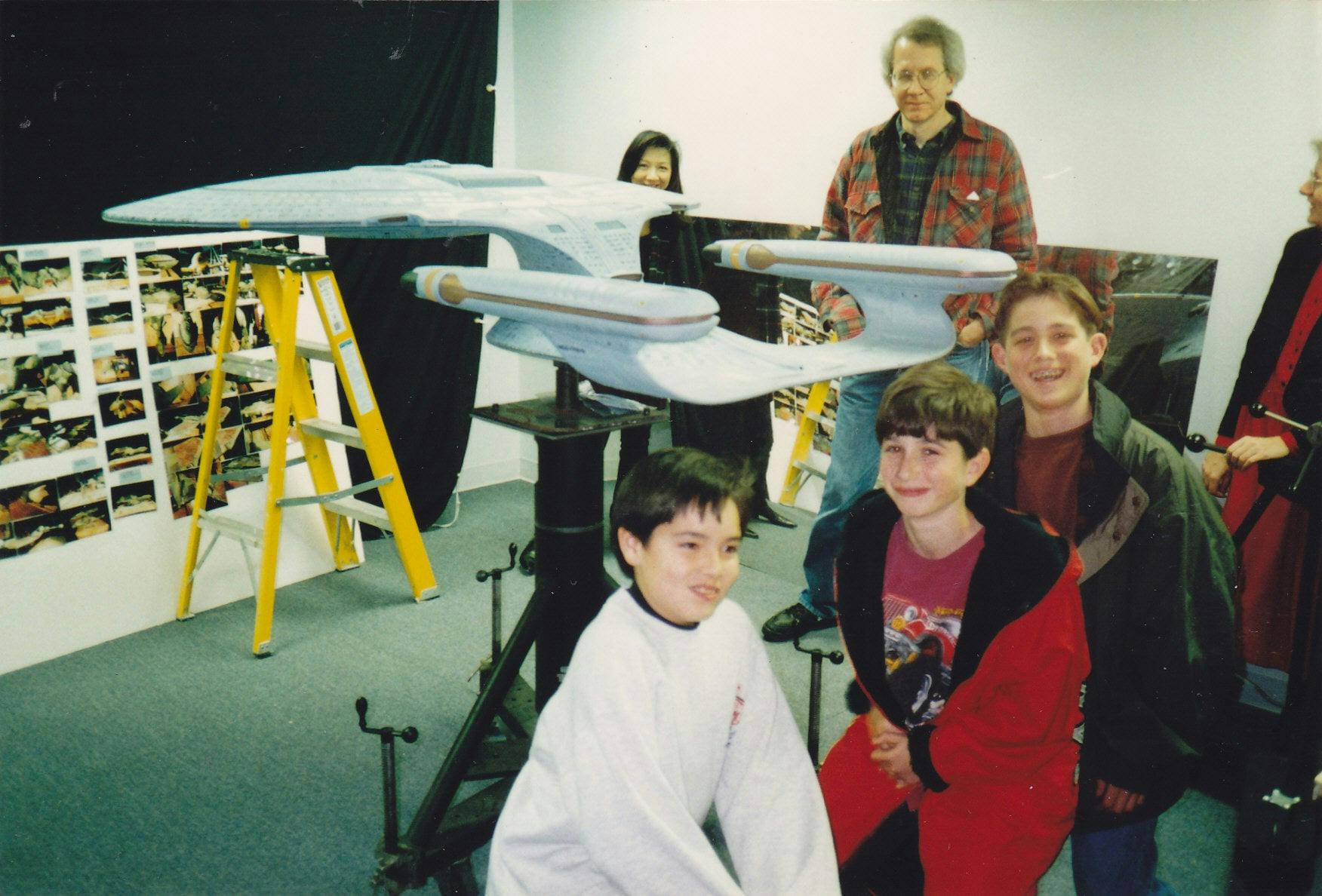
Matthew Wallin
How would you describe your career path?
MW: My career path involved trying to figure out how to get out of what I felt were dead-end jobs at the time and do work on things that mattered, in my opinion. I wanted to work on issues of consequence in the world and for our country, and so I went to grad school and did that for two years. I worked an internship, during that time, at the press office of the State Department, where I was able to, quite frankly, work on issues of national importance. It's quite an experience to be there halfway through grad school, and suddenly you're giving statements on behalf of the U.S. government on matters of war and peace.
You know, I enjoyed my time there. It was an interesting time but very political. There was all sorts of interesting stuff going on at the time, from the Green Revolution in Iran to North Korea lobbing missiles around as it does. All sorts of internal political drama as well, to say the least. A few years later, I ended up working for a think tank in D.C., which also started as an internship but turned into a job, and I'm still there today.
Can you expand on the kinds of topics that you study?
MW: My personal interest tends to be on issues of international conflict, looking at the perspectives of how they're fought, how they're won, how they're lost, how countries use their various tools of national power — sometimes down to the individual experiences of soldiers who fight these wars.
I've got an enormous interest in World War II history. Gene Roddenberry himself was an [Army Air Forces] World War II veteran, so there's a Star Trek connection there. It was that interest in the conflict side and the realization that these conflicts were so deadly and so many people had to sacrifice to win in them, especially if you look at the Second World War. It was the realization that there's another side to that. I wanted to better understand that and and understand how to make connections with other people, so that we all understand each other better, and, in an ideal world, would use those understandings to prevent war.
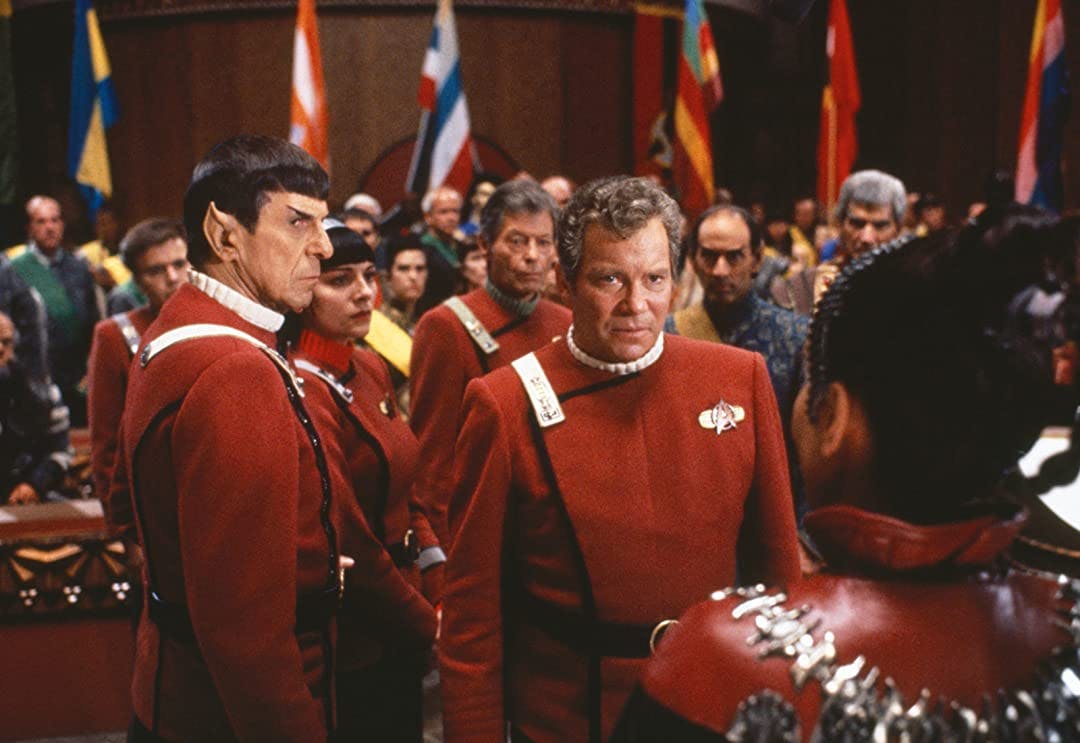
StarTrek.com
There’s a lot of fascinating literature on Star Trek and global affairs. Are there any international conflict analogies that you find particularly interesting?
MW: The entire idea of the Klingons was that they were basically the Soviet Union at the time. If you look at 1960s Star Trek, if we're talking about the clash of ideals, it was the West versus the Soviet Union. Much like that period, the conflict between the Federation and the Klingons at the time was not an open conflict, at least as portrayed in The Original Series. It was very much a Cold War-like situation where you'd have skirmishes and clashes, and there was constant fighting over influence in various star systems similar to the conflicts that the U.S. was having with the Soviet Union for influence in various countries.
That's the obvious thing and that sort of culminated in Star Trek VI: The Undiscovered Country. It was basically right around the time that the Soviet Union was falling apart, and you have a very direct comparison to that in that the Klingon Empire was starting to fall apart because of the loss of the Praxis moon and its energy supplies. The parallels are obvious. You had Kirk being the person who had probably the most beef with the Klingons being the person who's basically in charge of bringing these two warring societies together, with Chancellor Gorkon at the time being the Klingon version of [Soviet leader] Gorbachev.
What are your thoughts on whether Star Trek genuinely depicts “exploration” or if it perpetuates colonialism through this deeply ingrained concept of the final frontier?
MW: There's military lineage in Star Trek, and I always find it sort of amusing how it’s portrayed. You see a little bit of this on the show in that the other characters outside of Starfleet see Starfleet as the military. There is military rank and command structure that's involved, but they say, “We're not the military. We’re explorers.” At the same time, they’re also the ones that are fighting the wars, so it was kind of like a built-in skepticism of itself.
One of the interesting things about Discovery is the very premise of the show. It starts off with skepticism about Federation on the Klingon side, and there's a moment in the beginning of Discovery when the crew of the Shenzhou at the time greets the Klingons, and T’Kuvma basically goes, “Wait for it, wait for it…” and Captain Georgiou says, “We come in peace,” and everybody gets all pissed off. I suppose you could look at it as similar to a skepticism that people would have for American alliances today, whether that's skepticism over NATO expansion or something similar where it’s a defensive alliance but other people don't necessarily see it that way. The things that we see as good can be interpreted as hostile by other cultures, and I think that's important to recognize.
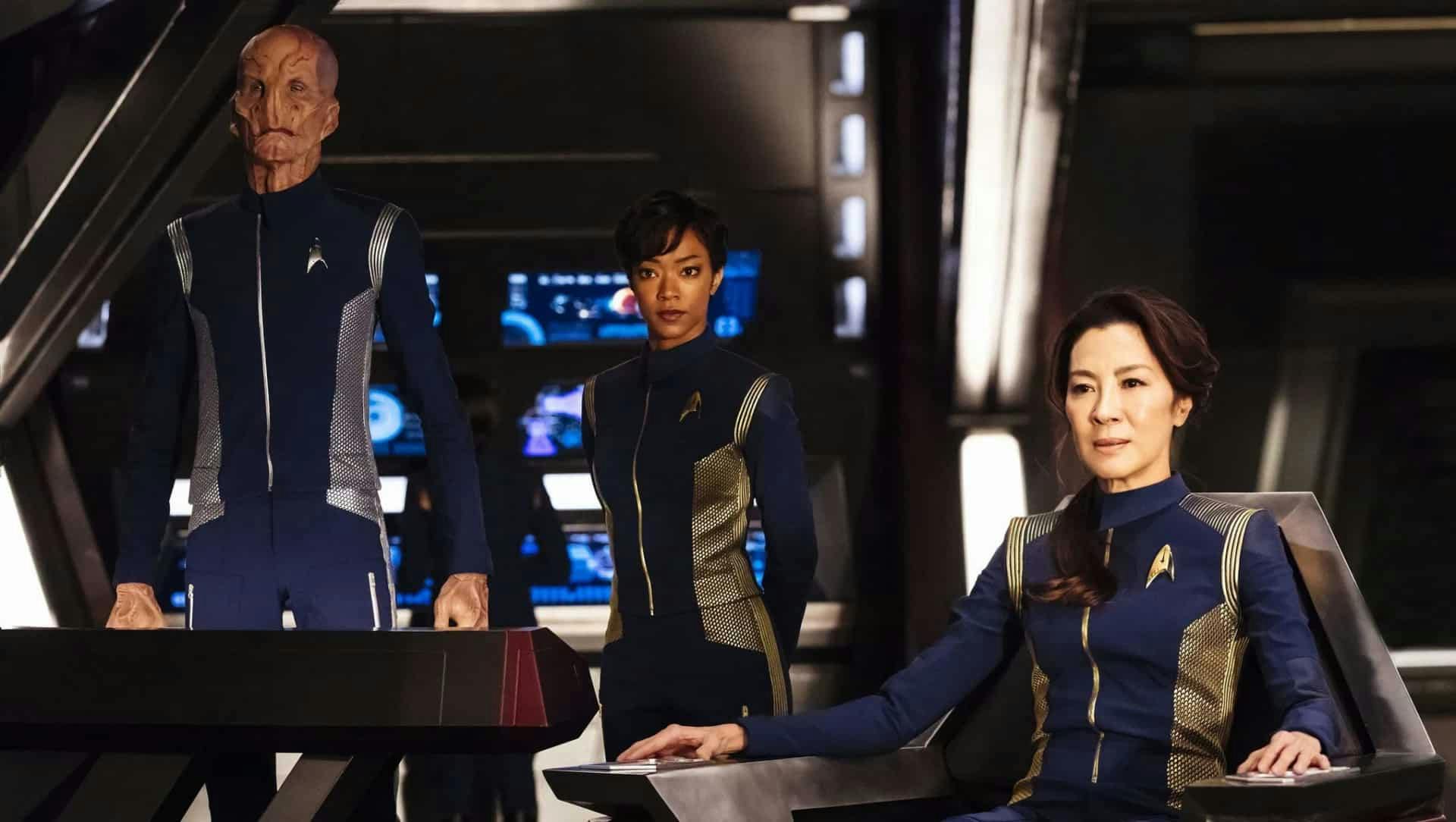
StarTrek.com
Discovery has certainly championed a new era of Star Trek. What about this series excites you most?
MW: There are certainly criticisms of Discovery, and I might share some of them, but at the same time, I'm enjoying the series. I'm enjoying a fresh perspective on things. I think it's really important, especially in the last few years, to have some sort of symbolism of hope, in a way. I think this third season is really delivering on that with some discussion of principles — the way that things should be, the ideals that we want to portray. I like that it's extremely inclusive, both from an ethnicity standpoint and from a sexuality standpoint. It’s got a very diverse cast, even in ways that the other series weren’t, speaking beyond the cast playing the characters.
You've got a lot more unusual-looking aliens on the ship this time. It’s kind of funny because you look at the other series and, yes, there were aliens around with some frequency, but you didn't see them as frequently portrayed on the crew as they are now. You’d have these majority-human crews with your token Vulcans or your Klingon, your android, your Bolian barber. But going beyond that, there wasn't as much as you would expect for a series that sort of made this the point — that this was a United Federation of Planets. Here [on Discovery] — I think partially because of budgetary reasons — we’re seeing a lot more of that Federation of Planets on one ship. I think that's the goal that the creators of Star Trek and Roddenberry had in mind. You know, back in the 60s, an impressive display of diversity was including a Black woman as an officer and a Russian — and a Vulcan. I think we're just looking at an even wider idea of diversity at this point.
Can you talk about the ways in which Star Trek reflects contemporary international conflict?
MW: I think in a show like Deep Space Nine, you actually see the closest parallels to what we see in modern conflict. I didn't watch Deep Space Nine the whole series through until, I want to say, like two years ago. I remember it being on TV at the time, but as a kid, I didn't understand it and I found it boring. They’re on a space station. They didn't go anywhere. They’re dealing with kind of boring stuff. As an adult, I understood it a lot more, and it became a lot more interesting. I think it's the most realistic series because they're dealing with stuff that adds a needed dose of reality to that sort of “Gene Roddenberry optimism.” While it's nice to have optimism, and I think it's really important to have, it's also important to understand how you apply that in principle to a non-optimistic situation. They’re dealing with less cut-and-dry, morally-challenging issues. You’ve got the Bajoran Resistance, which, even by some of their own descriptions, amounted to terrorism. How do we compare that to what's going on in the last 30 years that the United States has been dealing with? You deal with the very unpleasant realities of war.
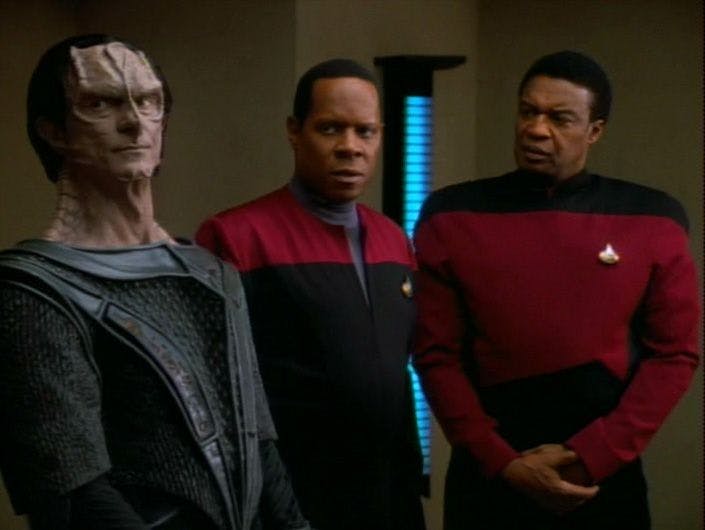
StarTrek.com
What about sociopolitical commentary in other Star Trek shows?
MW:The Next Generation touched on this lightly here and there. We certainly saw some racism come from Chief O'Brien, especially dealing with the Cardassians — it’s certainly out and about in Deep Space Nine and I think, you know, O’Brien realizes he has this problem. Then you're dealing with things like Maquis [named after the French resistance guerrilla fighters during Nazi occupation of France during World War II] and their legitimate beef with how they were treated both by the Federation and the Cardassians. You’re dealing with all sorts of moral gray. In real life, you try to adhere to your principles, but there are some situations with no good choices. Folks are placed in a position where they have to make no good choices, because to do nothing is also a choice and has negative consequences.
I've read that you describe yourself as a living historian. What does that entail?
MW: A living historian is a fancy word for reenactor. I do World War II reenactments, and there’s two ways to do that. You do public teaching displays where you set up a display in a camp and you talk to the public at an event at a number of different types of venues. Sometimes they are specifically historical events or where people go to a historic site and everybody is set up to do this. Sometimes they're at museums. Sometimes it's parades, and other times it's something like an air show. It's to inform and teach people about history and the experience of what the average American soldier had to go through 75 years ago and longer — to bring that to life for people in a time when I don't know that most Americans could tell you what D-Day was. The other part of it is that we do private battles where people bring out their tanks, Jeeps, half-tracks, and other things — anti-tank guns, full-size artillery pieces. You find a site that will allow you to have a battle, which is fun.
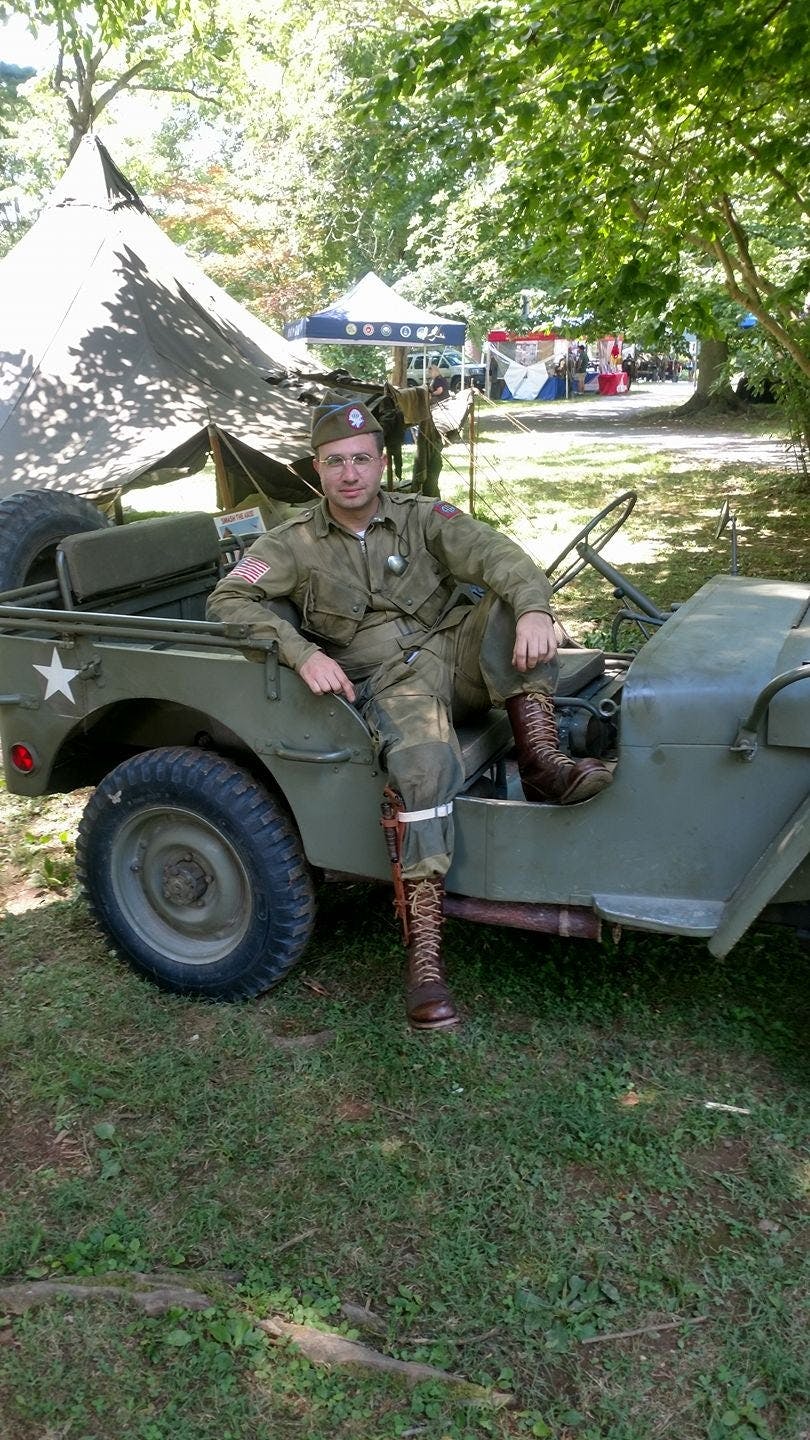
Matthew Wallin
That’s an interesting link between nerd culture and military history.
MW: I always joke that we're just a bunch of cosplayers! If we go into military history, the Enterprise was named after the aircraft carrier Enterprise CV-6, the sixth aircraft carrier of famed World War II history [and the most decorated warship of the war]. Such a famous ship became a starship — I think that's partly Gene Roddenberry and his reverence for the Navy. In some ways, it was a recognizable name to those of the era when Star Trek came out. Everybody had either heard of or was somehow aware of the aircraft carrier Enterprise at the time, so to give that famous name to a fictional starship was, I think, a recognition that it would resonate with a 1960s audience.
How would you describe Star Trek to folks who see it as just a science fiction show?
MW: I look at it as a show that is about social commentary and aspiring to the sort of things that we say we believe in, especially things like equality writ large. Star Trek explores it from all angles. It explores racial equality. It explores gender equality. It explores equality of sexuality. These concepts really reflect on the problems we’re dealing with in society now and the ideal ways in which we should treat these problems. I think it sets a standard to which we should aspire, but I think it depends on who your audience is. Like anything, you need to tailor your message to your audience. There’s messages in there for people who are interested in social justice. There’s messages in there for people who are interested in international relations and politics. There’s messages in there for people who are interested in moral quandaries and character growth. There’s messages in there for people who are optimists. And then there’s messages in there for those of us who are just pure nerds.
A Timeline Through the Star Trek Universe
For those who like the shiny, cool spaceship!
MW: Oh, yeah. The shiny, cool spaceship. The “U.S.S. Flying Hilton.” There’s some appeal to that. There’s stuff in there for the people who like action, too. There’s some pretty cool space battles in Star Trek here and there. And then for your sort of people who like drama, there’s dramatic moments. Star Trek II is a good introduction for people who want something with some excitement. Or Star Trek IV for the environmentalist space hippies — but it’s also something that's really accessible to a wider audience. I think this is something that Star Trek does well. When you really look at it, it’s not necessarily about the nerdy cool spaceship stuff. It’s about connecting with people, and Star Trek IV is a good opportunity for that. It blends humor and space and whales and all of that sort of stuff. Star Trek still does provide that idea of optimism and where we need to get to. I don’t mean just traveling the stars — I mean where we should get to as a society and as a planet, where hopefully we resolve many of the issues that plague us today, and that we get to a point where we’re not fighting each other anymore — we’re actually working to benefit everyone.
Olivia Popp is a freelance writer and all-around sci-fi nerd. She enjoys screenwriting, traveling, trying teas from around the globe, and discussing what speculative fiction can illuminate about the world in which we live. Find her on Twitter: @itsoliviapopp.
Star Trek: Discovery streams on CBS All Access in the United States, airs on Bell Media’s CTV Sci-Fi Channel and streams on Crave in Canada, and on Netflix in 190 countries.

